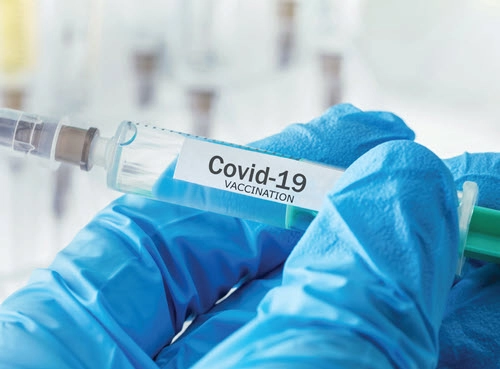Part B Insider (Multispecialty) Coding Alert
Get the Facts on Part B Payment Rates for Future Vaccines
Add all the cost-sharing particulars to your COVID-19 checklist.
If your head is spinning from pandemic policy overload, you’re not alone. As healthcare workers far and wide ramp up for a dismal winter amidst the third wave, the feds offer coverage guidance and administrative flexibilities.
Context: On Nov. 6, the Centers for Medicare & Medicaid Services (CMS) published an interim final rule with comment period (IFC) in the Federal Register, covering an amalgam of coronavirus updates. This is the fourth COVID-19-inspired IFC that CMS has issued and follows through on CARES Act mandates originally outlined in March. Among the different policies, the IFC offers guidance on Part B payments for COVID-19 treatments and vaccines.
Refresher: Back in March, Congress tried to ensure under the CARES Act that everyone would be able to get the COVID-19 vaccine for free. “However, certain in the firm’s Health Law Blog. Past rules didn’t allow CMS “to cover the cost of drugs authorized through emergency use protocols,” and that’s one of the primary reasons the agency released this latest IFC, indicates Wachler.
Now: The IFC ensures that beneficiaries will have cost-free access to Food and Drug Administration (FDA)-approved vaccines when they are available.
“The IFC establishes that COVID-19 vaccines that are authorized or approved by the FDA will be covered by Medicare Part B without co-pays or deductible,” says attorney Kyle Gotchy with King & Spalding LLC in online guidance. “The IFC also implements CARES Act provisions that require most private health plans to cover a COVID-19 vaccine without cost-sharing requirements.”
He adds, “The IFC also establishes that Medicare will provide enhanced payment to hospitals for new products authorized or approved to treat COVID-19 in the inpatient and outpatient settings.”

Know These 5 Major Changes
With the public health emergency (PHE) extended for a third time through Jan. 20, 2021, the feds are implementing several policies to alleviate providers’ burdens while working to thwart the virus. Take a look at five critical updates mentioned in the rule:
1. Private payers: The IFC moves on CARES Act provisions outlined in section 3203. Now, “non-grandfathered group health plans and health insurance issuers offering non-grandfathered group or individual health insurance coverage [will] provide coverage, without cost sharing, for qualifying coronavirus preventive services, which includes COVID-19 immunizations,” notes a CMS fact sheet.
Additionally, the IFC amends past regulations and guarantees qualifying COVID-19 preventive services are fast-tracked for rapid coverage.
2. Vaccine rates: CMS will set payment rates for COVID-19 vaccine administration, the IFC suggests. For single doses, Medicare will reimburse at a rate of $28.39. However, for vaccines with a series of two or more doses, Medicare set a payment rate of $16.94 for the initial dose and $28.39 for the final dose.
“These rates recognize the costs involved in administering the vaccine, including the additional resources involved with required public health reporting, conducting important outreach and patient education, and spending additional time with patients answering any questions they may have about the vaccine,” notes CMS. “These rates will also be geographically adjusted.”
3. IPPS: As part of the Inpatient Prospective Payment System (IPPS), the IFC institutes an add-on payment for eligible cases using new and approved COVID-19 treatments. “The enhanced payment will be equal to the lesser of: (1) 65 percent of the operating outlier threshold for the claim; or (2) 65 percent of the cost of a COVID-19 stay beyond the operating Medicare payment (including the 20 percent add-on payment under section 3710 of the CARES Act) for eligible cases,” CMS says.
4. OPPS: Under the Outpatient Prospective Payment System (OPPS), CMS set up a separate payment for new COVID-19 treatments provided at the same time as a Comprehensive Ambulatory Payment Classification (C-APC) service for the duration of the PHE.
5. Testing prices: To better implement CARES Act requirements, the IFC adds another part to 45 CFR part 182 related to test prices, codifying “price transparency requirements for the actual performance of a COVID–19 diagnostic test,” the rule states. Providers of COVID-19 tests will now need to make the cost of the diagnostic test available online, in writing, or in signage within two days of any request.
The IFC also gives CMS “discretion” to punish providers. Deciding how to enforce the policy is up to the agency, but possible punishments include written warnings, corrective action plans (CAPs), and civil monetary penalties (CMPs), guidance suggests.

“We have developed a comprehensive plan to support the swift and successful distribution of a safe and effective vaccine for COVID-19,” says CMS Administrator Seema Verma in a release. “CMS is acting now to remove bureaucratic barriers while ensuring that states, providers and health plans have the information and direction they need to ensure broad vaccine access and coverage for all Americans.”
Information related to COVID-19 is changing rapidly. This information was accurate at the time of writing. Be sure to stay tuned to future issues of Part B Insider for more information.
Resource: See the rule at www.govinfo.gov/content/pkg/FR-2020-11-06/pdf/2020-24332.pdf.
Part B Insider (Multispecialty) Coding Alert
- Improper Payment Rate:
‘Corrective Actions’ Decrease Overall Rates
Hint: Inadequate documentation remains a problem. If you’ve been waiting patiently for Medicare’s improper payment [...] - Compliance:
Stark Update Offers Providers a Sleigh Full of Surprises
Hint: New exceptions and definitions clear up confusion. Since the onslaught of the pandemic, the [...] - COVID-19:
Get the Facts on Part B Payment Rates for Future Vaccines
Add all the cost-sharing particulars to your COVID-19 checklist. If your head is spinning from [...] - Part B Coding Coach:
Add This E/M Overview to Your Resources
Tip: You’ve got one less code to worry about now. With 2020 behind us, it’s [...] - Reader Question:
Understand HIPAA Nuances on Electronic Signatures
Question: With the pandemic still impacting our daily schedule, we continue to see a majority [...] - Physician Notes:
Care Compare Is Up and Running
Hint: Quality monitoring remains status quo. Whether or not you were ready to move on, [...]

